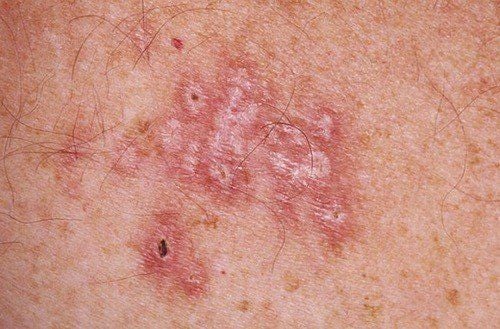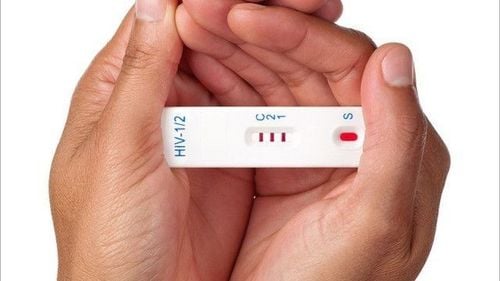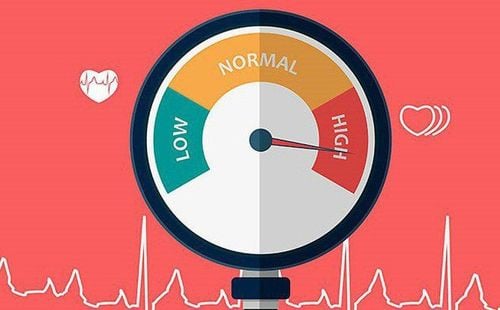Experts advocate condoms as a safe, simple, and 98% effective way of pregnancy control. In addition to the danger of unexpected pregnancy, having intercourse without a condom increases the risk of sexually transmitted illnesses such as HIV, Chlamydia, gonorrhea, and syphilis.
1. The Importance and Effectiveness of Condoms in Sexual Health
In today's modern world, condoms are one of the most widely used and essential tools for promoting sexual health and safety. They are among the simplest yet highly effective methods recommended to prevent unintended pregnancies and protect individuals from sexually transmitted infections (STIs).
Currently, especially in developed countries, a wide variety of condom options are available to suit different needs and preferences. Male condoms are far more commonly used compared to female condoms and are offered in various sizes and materials, such as latex, polyurethane, or natural membranes like lamb cecum. These materials are carefully designed to ensure durability, flexibility, and comfort, reducing the risk of breakage while enhancing the sexual experience for both partners.
Condoms not only serve as an effective barrier method for pregnancy prevention but also play a critical role in minimizing the risk of STIs, including HIV, syphilis, and genital warts. Additionally, they provide a protective layer that reduces friction and potential injuries to the vaginal walls and penile glans during intercourse, contributing to a more comfortable and pleasurable experience. This combination of safety and comfort allows partners to engage in sexual activities with greater confidence and satisfaction.
By integrating condoms into sexual health practices, individuals can enjoy intimacy responsibly while prioritizing their well-being and that of their partners.

2. What are the implications of condom-free intercourse?
Reproductive Health Specialist and Family Planning Counselor: advocate that condoms are adequate for family planning and STD protection. Unprotected intercourse increases the risk of unexpected conception.
Contraceptive sheaths operate as a barrier, preventing the man's sperm from contacting the woman during sexual intercourse. As a result, the sperm cannot fertilize the egg.
Lack of condom usage leads to men discharging their receptacle containing sperm inside the female vagina; this places the female partner at a high risk of conceiving, especially if there is semen inside the vagina. During the time of sexual intercourse, the sperm in the semen left in the vagina begins to swim towards the womb, and if it comes into contact with the egg in the fallopian tube, then fertilization takes place, and the female becomes pregnant.
If you are not ready for motherhood, you must use condoms or other dependable contraception techniques when participating in sexual activity. While no approach is 100% successful, when worn appropriately, condoms can prevent pregnancy by up to 98%.
When compared to hormonal techniques such as oral contraceptives, they are a more affordable, accessible, and safe form of contraception with fewer side effects. Furthermore, condoms play an essential role in lowering abortion rates, especially among young people who may be unprepared for the consequences of unprotected sex.
In addition to condoms, other contraceptive methods include withdrawal, contraceptive implants, intrauterine devices (IUDs), and vasectomies. Condoms, on the other hand, continue to be the most simple, practical, and safest method of avoiding unplanned pregnancies and sexually transmitted illnesses.
3. Additional Dangers of Unprotected Intercourse
Unprotected intercourse raises the possibility of pregnancy while also exposing people to sexually transmitted diseases (STDs). These are illnesses that spread from one person to another via sexual contact, including vaginal, anal, and oral intercourse, without protection.
3.1. Genital Chlamydia Infection
Chlamydia is one of the most prevalent sexually transmitted illnesses caused by the Chlamydia trachomatis bacteria. Many people with chlamydia have no apparent symptoms. However, when symptoms occur, they may include:
Burning sensation or pain during urination
Discomfort during sexual intercourse
Abnormal vaginal or penile discharge (blue, yellow, or white)
Lower abdominal pain
Bleeding between menstrual periods in women
Testicular pain in men
Symptoms typically appear 1-3 weeks after exposure.
If left untreated, chlamydia can lead to serious complications, including pelvic inflammatory disease (PID) in women, which increases the risk of infertility. Fortunately, diagnostic methods such as nucleic acid amplification tests (NAAT) are available, and the infection can be effectively treated with antibiotics.
3.2. Gonorrhea
Gonorrhea is another bacterial infection transmitted through sexual contact. It can affect the genitals, throat, and rectum. While many infected individuals exhibit no symptoms, common signs include:
- Yellow, green, or milky discharge from the penis or vagina
- Pain or burning during urination
- Increased frequency of urination
- Itching or discomfort around the genitals
- Sore throat
- Bleeding between periods in women
- Testicular pain in men
If not treated and managed correctly, gonorrhea can cause fever, damage to other organs in the body, such as the skin, arthritis, and significant problems. Antibiotics can treat the disease, so consult a doctor immediately if you or your spouse exhibit symptoms.

3.3. Syphilis
Syphilis is a disease caused by the bacteria Treponema pallidum (spirochete). Initially, the first symptom to appear is the formation of a small round ulcer called a chancre. This ulcer can appear on the genitals, anus, or mouth; although it is painless and heals on its own, it is very contagious. After that, people with syphilis may have some of the following symptoms:
- Skin rash
- Fatigue
- Fever
- Swollen lymph nodes
- Headache
- Joint pain
- Weight loss
- Hair loss
These symptoms may go away without treatment after a few weeks or recur for up to 1 year. However, if left untreated, syphilis will progress to the final stage and have severe symptoms such as:
- Visual loss
- Hearing loss
- Memory loss
- Neurological problems
- Infection of the brain or spinal cord
- Heart disease
- Death
If detected early, syphilis can be easily treated with antibiotics, reducing serious consequences. However, syphilis in newborns (transmitted from the mother) can be fatal. That is why all pregnant women need to be screened for syphilis.
3.4. HIV
HIV is the virus that causes acquired immunodeficiency syndrome in humans. This disease weakens the immune system and increases the risk of infection with other viruses, bacteria, and some cancers, leading to death.
In the early or acute phases of HIV infection, the symptoms can frequently be misinterpreted as flu symptoms. Symptoms include fever, chills, pains, rash, and enlarged lymph nodes. These early symptoms often subside after approximately a month. During this time, the sickness is exceptionally contagious. Following that, people infected with HIV frequently do not have any further severe or lasting symptoms for many years.
However, the virus continues to replicate, weakening the immune system. Symptoms may include recurrent fatigue, fever, headache, diarrhea, weight loss, etc. If the virus is not treated and its progression is not halted, the patient will reach the terminal stage - AIDS.
At this time, the patient may experience fatigue, high fever, chills for a long time without a clear cause, chronic diarrhea, opportunistic infections, etc.

There is no cure for HIV, but there are ways to manage the condition. People with HIV can live normal lives and have the same life expectancy as those without HIV, provided they receive timely and appropriate treatment.
In addition, appropriate treatment minimizes the potential of HIV transmission to others. Therapies can reduce the virus's presence in the body to undetectable levels. At this stage, HIV cannot spread to others.
With recent advancements in testing and treatment, many HIV patients can live long and healthy lives.
3.5. Hepatitis B
Hepatitis B is an infection caused by the Hepatitis B virus. Sexual intercourse is a significant form of transmission from mother to kid, in addition to other routes such as blood.
Sexual intercourse, particularly anal sex, and oral sex, increases the risk of hepatitis B virus infection. Suppose a person with hepatitis B has lesions in their mouth (mouth ulcers, tooth irritation, gingivitis, purulent tonsillitis, etc.), HBV may transit through the plasma in the sores and infect the sexual partner.
Hepatitis B is a widely spread disease all over the world. The condition can advance quickly, with 80-90% recovering, while 10-20% develop chronic hepatitis, resulting in cirrhosis and liver cancer. In the early stages, the patient has only minor symptoms, which might lead to the patient subjectively disregarding them. Following a lengthy period of development, the patient could experience symptoms such as:
- Fatigue, lethargy, physical weakness
- Loss of appetite, poor appetite, fear of grease, digestive disorders, bloating
- Yellow eyes, yellow skin, dark urine, pale stools
- Pain in the liver area, upper right abdomen
- Mild fever in the afternoon, itchy skin sensation
Currently, there are numerous ways to consistently diagnose HBV infection and determine the extent of liver damage. Although no drug can eliminate the virus, existing approaches can regulate and reduce its activity. These medicines temporarily make the virus dormant, avoid disease recurrence and consequences, and restore liver function.
3.6. Other sexually-transmitted diseases
In addition to the diseases listed above, not wearing condoms during insecure intercourse might result in other diseases, such as:
- Herpes simplex.
- Genital warts.
- Genital warts.
- HPV
- Trichomonas Vaginalis
- Molluscum Contagiosum
- Granuloma inguinale.
- Chancroid
Dangerous intercourse can increase the risk of unintended pregnancy and sexually transmitted illnesses. When abnormal signs or symptoms of the diseases listed above are suspected, you should still be checked for early detection in order to receive efficient treatment and avoid complications.
Please dial HOTLINE for more information or register for an appointment HERE. Download MyVinmec app to make appointments faster and to manage your bookings easily.













